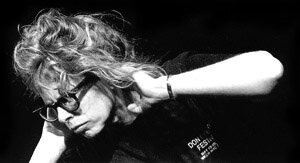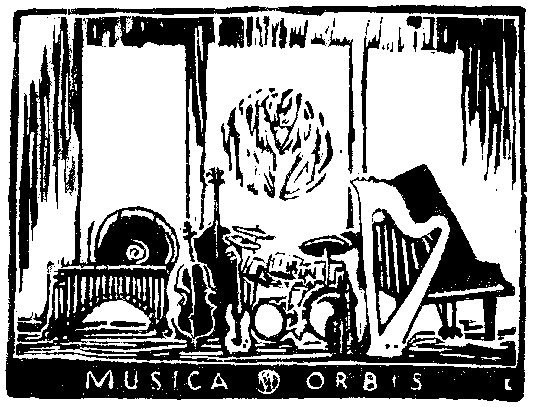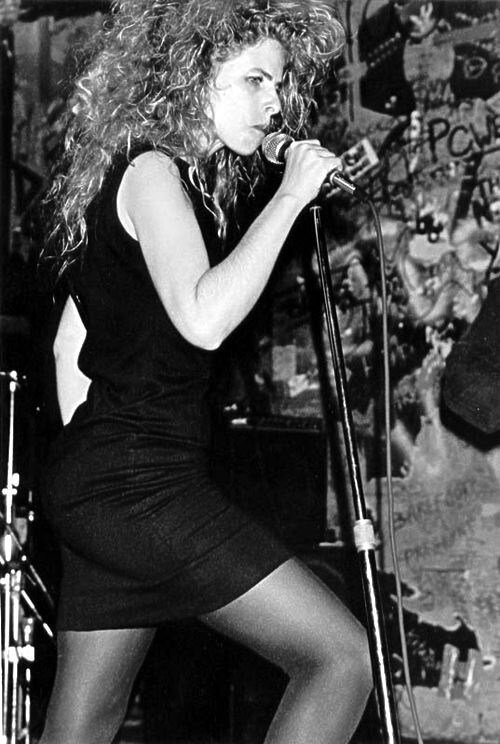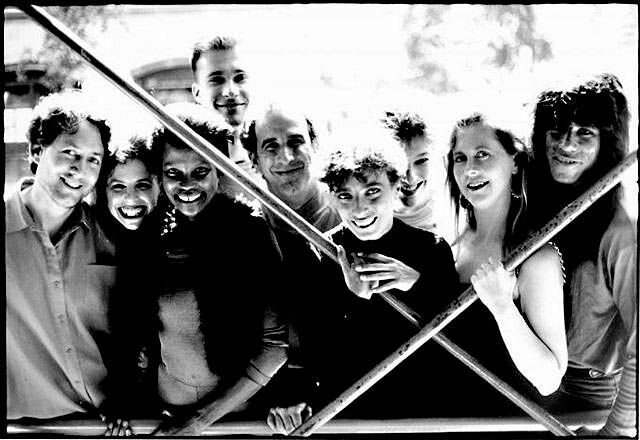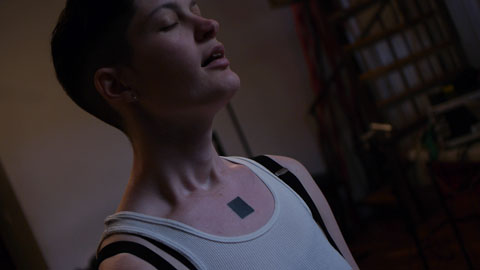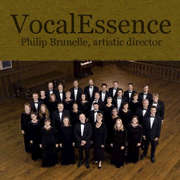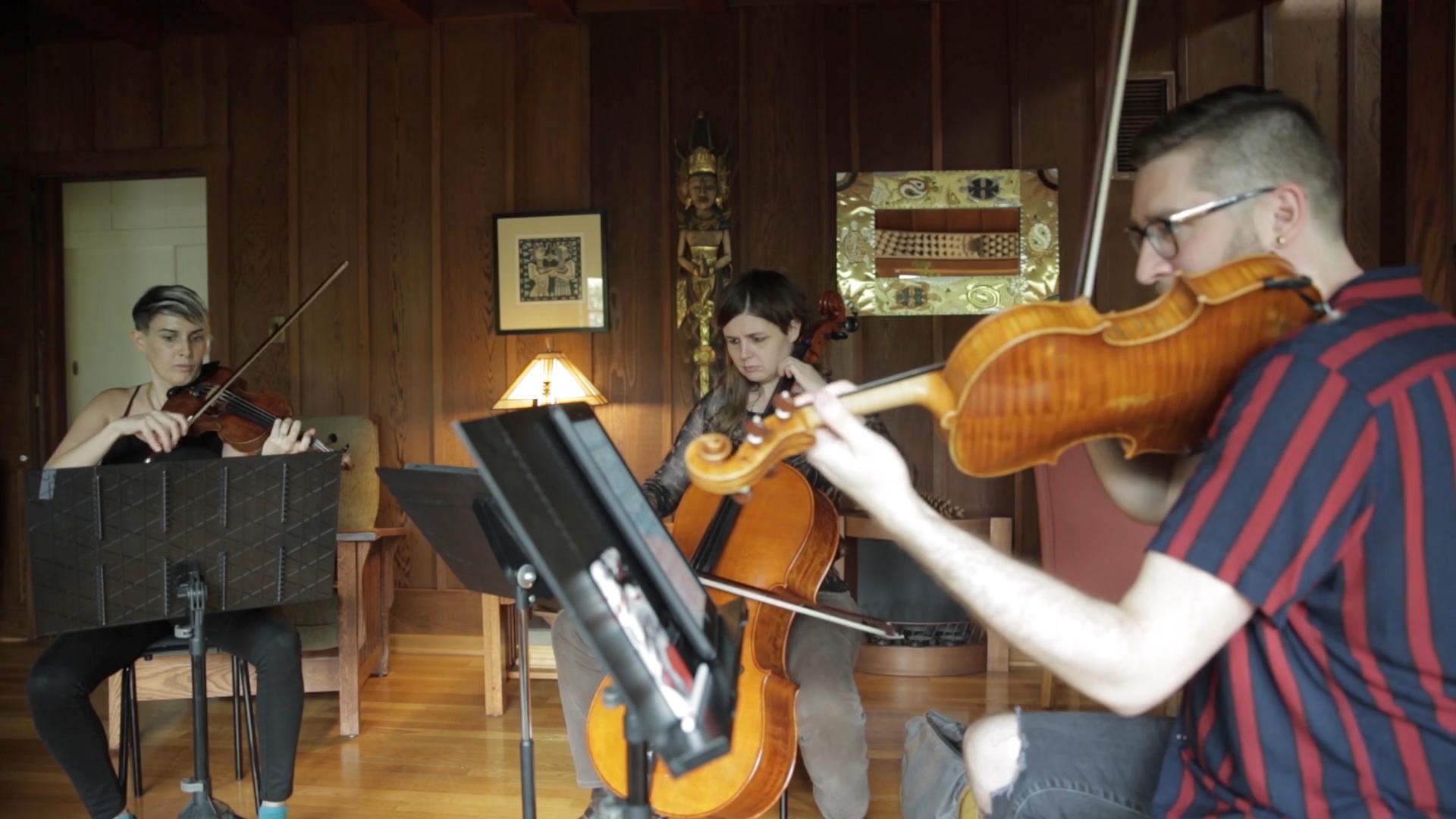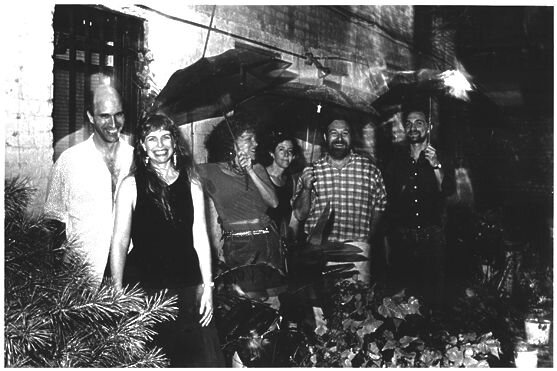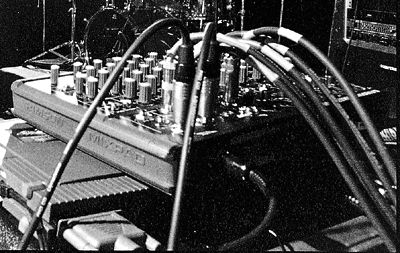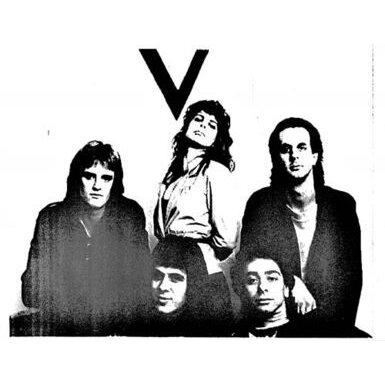“Brainy, boisterous and quintessentially downtown.”
—Mark Swed, Los Angeles Times
For pioneering NYC composer, bandleader, and multi-instrumentalist Kitty Brazelton, music is personal, and the personal is universal. Winner of two Opera America America awards for Female Composers, the Copland Fund for Music and an NPR-broadcast choral commission from world premier choir VocalEssence, among others, the irrepressible Brazelton has always championed music’s power to unite—across genre, across tradition, across language. As a teenager studying Tzotzil, a language spoken by the Maya in the remote mountains above the Yucatan, Brazelton began to believe in a kind of universal language that would transcend boundaries. This spirit of radical inclusivity has propelled her dazzling work across decades and into the now, shapeshifting from 70’s psychedelic chamber-folk Musica Orbis and ‘80s anthemic new wave Hide the Babies to 9-piece electroacoustic Dadadah and ‘90s cyberpunk trio What is it Like to Be a Bat?
Most recently, after leaving teaching to compose full time, Brazelton has been delighted to team with Boston-based MASARY Studios to provide music for fours hours of live a cappella choral music for FirstWorks Providence RI’s street festival. in early December 2023. She wrote two hours—”we sang it twice!” During multi-media installation Recursion and Release, attendees physically embarked on an immersive journey through spatialized sound and light as they explored three separate environments of the venerable (1847) downtown Providence Grace Church campus—digital audio manipulation, video projection and dynamic lighting designed by collaborator Jeremy Stewart, MASARY. In the sanctuary itself, strikingly unamplified but generative source for sound and light throughout, Brazelton’s vocal quintet sang newly composed polyphony, with text from American Buddhist Jack Kornfield’s guided “Meditation on Letting Go.”
On this website you can hear:
Brazelton wrote STORM (awarded the 2012 Carl von Ossietzky Composition Prize), a retranslation and setting of Psalm 104, after Hurricane Sandy ravaged her hometown New York City, as a prayer for human safety. Begun with recordings by singers and musicians isolated in global quarantine, STORM became part of ambitious immersive-audio the world is not ending—we’ve been here before, along with Earthquake!, a retranslation and setting of the Koran’s chapters concerning the apocalypse, and several other choral/instrumental works.
In The Planes of Your Location, a live concert experience and recording project centered around her third string quartet, I am not my photograph (2019), Brazelton confronts the encroaching invisibility we all face in a tech-driven world. For the project, she found the perfect collaborators in LA-based Isaura String Quartet: precise, virtuosic, and equally at home in the concert hall and the rock club. Together they stand against the current era’s erosion of identity and suppression of diversity. Planes premiered at Art Share LA with Isaura and friends just days before the global COVID-19 shutdown in early March 2020.
With the pre-COVID a cappella Essential Prayers Project, Brazelton engaged an enormous audience: anyone who has ever wished for the world to change. Essential Prayers redefines, defies, yet embraces the tradition of prayer, making powerful words of hurt and hope accessible to all. Brazelton’s songwriting-borne knack for writing from the voice lends these choral works a soulful, lived-in quality. With musically untrained friends in mind, Brazelton set the graceful, stately vocal lines of the well-known Serenity Prayer so notes could be remembered by pattern and sung by anyone. The Essential Prayers Project was on an extended tour of intimate house concerts throughout the US when the global shutdown forced its cancellation.
In Brazelton’s most recent opera, The Art of Memory, words also ripple across time and transcend doctrine. Set against the eerily familiar backdrop of the fall of the Roman empire and its storm of religious ferment and intolerance, St. Augustine’s early Christian, yet ever-prescient message: “now is all there is” rings out in anthem. Brazelton leads a punk rock-meets-plainchant, Max/MSP-sculpted 13-tet ensemble, and supports two women in the two male lead roles of Augustine and Ambrose. Art of Memory was awarded Opera Grants for Female Composers 2015 from Opera America, and a New York State Council for the Arts Individual Artists Fellowship in 2021.
More threads to follow if you so desire:
The Art of Memory follows up a decade spent honing her craft writing vernacular opera with Fireworks—an American opera buffa (premiered May 2017 with 17-piece Hunter College Opera Theater chamber orchestra); Animal Tales (awarded Opera America’s 2016 Grants for Female Composers), and ecclesiastes: a modern oratorio (released on Innova Recordings, Grammy-listed in 2010, and perennially available in podcast from WNYC) for male vocal quartet, cello, free jazz drum kit, bells and electronic soundscapes.
Fierce Grace, a song cycle, commissioned by Opera America and composed by Brazelton in collaboration with American Opera Projects composer-in-residence Laura Kaminsky, Pulitzer Prize-winner Ellen Reid, and Laura Karpman, honors the life of first woman congressman Jeannette Rankin, with libretto by filmmaker Kimberly Reed. The cycle—one song by each composer—premiered at the Library of Congress on April 7, 2017. Ongoing Fierce Grace appearances include 2019 New York Opera Fest at The Lesbian, Gay, Bisexual & Transgender Community Center and July 2020 with Cincinnati Opera.
Oh Joy! for SATB and piano with lyrics derived from Psalm 77 (re-translated by Brazelton from the original Hebrew and Vulgate Latin versions), was commissioned in 2008 by VocalEssence Ensemble Singers (dir. Philip Brunelle) for its 40th anniversary. The piece honors the power of choosing “to sing out!”—”Cast off heartbreak, discard care!” Oh Joy! was premiered in an NPR broadcast with Garrison Keillor as master of ceremonies, and has been published by Boosey & Hawkes in its “Sing A New Song” series.
Iconic John Zorn called What is it Like to Be a Bat? (2003), Brazelton’s project with sound-artist and Max-MSP maven Dafna Naphtali, "twisted, powerful chamber rock blending a raucous punk aesthetic with vocal harmonies...complex, visionary." Adventurous record Chamber Music for the Inner Ear (2002; CRI Emergency/New World) received grants from the Copland Fund for Recording and the Mary Flagler Cary Trust and featured commissions by and for the Manhattan Brass Ensemble and California Ear Unit. Genre-crossing album Love Not Love Lust Not Lust (1999) by Brazelton's nine-piece electroacoustic rockestra Dadadah was called "brilliant" (New York Times) and "impressive" (Rolling Stone). Sleeping Out of Doors (1998), a semi-concerto for piano and orchestra, was premiered by and commissioned for Kristjan Järvi and the Absolute Ensemble, and received a grant from American Music Center and the Margaret Jory CAP. Hildegurls, a band of four women composers, deconstructed the music and message of 12th-century mystic Hildegard von Bingen, eventually performing at Lincoln Center Festival ‘98 and releasing Innova CD Electric Ordo Virtutum (2011), funded by New York Foundation for the Arts.
Masters and Doctor of Musical Arts in Composition (Columbia University), Kitty Brazelton lives in New York City’s East Village and on Massachusetts’ Cape Cod. She was a full professor of composition at Bennington College from 2001-2022.
You can read more about KB’s past projects and ensembles here.
